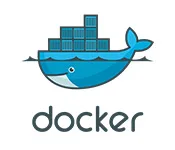I have the docker file:
FROM python:3.9-slim
RUN apt-get update && apt-get install -y openssh-server
RUN pip install
cryptography
bcrypt
pynacl
paramiko
scp
loguru
pydantic
psutil
CMD ["/usr/sbin/sshd", "-D", "-h", "/etc/ssh/key"]
WORKDIR /code
And this main.py file import references:
import psutil
from loguru import logger
from paramiko import SSHClient
from pydantic import BaseModel
from scp import SCPClient
When running docker-compose with:
COMMAND='python main.py "hostname" 10.0.0.1,10.0.0.2,192.168.0.5' docker-compose up
I get this output:
infra-host_a-1 | Traceback (most recent call last):
infra-host_a-1 | File "main.py", line 10, in <module>
infra-host_a-1 | from loguru import logger
infra-host_a-1 | ModuleNotFoundError: No module named 'loguru'
infra-host_a-1 exited with code 1
Docker-compose content:
version: "2.2"
services:
host_a:
build: build
command: ${COMMAND}
hostname: hostA
ports:
- "2222:22"
volumes:
- ./code:/code
networks:
net1:
ipv4_address: 10.10.100.1
host_b:
build: build
hostname: hostB
networks:
net1:
ipv4_address: 10.10.100.2
net2:
ipv4_address: 10.10.200.1
host_c:
build: build
hostname: hostC
networks:
net1:
ipv4_address: 10.10.100.3
net3:
ipv4_address: 172.29.100.1
networks:
net1:
driver: bridge
enable_ipv6: false
ipam:
config:
- subnet: 10.10.100.0/24
gateway: 10.10.100.32
This only happens with docker-compose, but when running the project in a container alone it works with docker build/run.
How do I solve this?

 Question posted in
Question posted in 

2
Answers
I solved the issue by using --build with docker compose like this:
This made the libraries installation valid
Wrong Python Command?
On Unix Like Systems, the Paython command is usually
python3rather than justpython. I suspect that you installed all the dependencies for Python3 but then tried to run it with Python2Virtual Enviroment?
If the above’s solution of chaning the command to python3 did not work, you may need to create a virtual enviroment inside the docker container, install packages into that virtual enviroment and run the python file in the Virtual Enviroment as well.